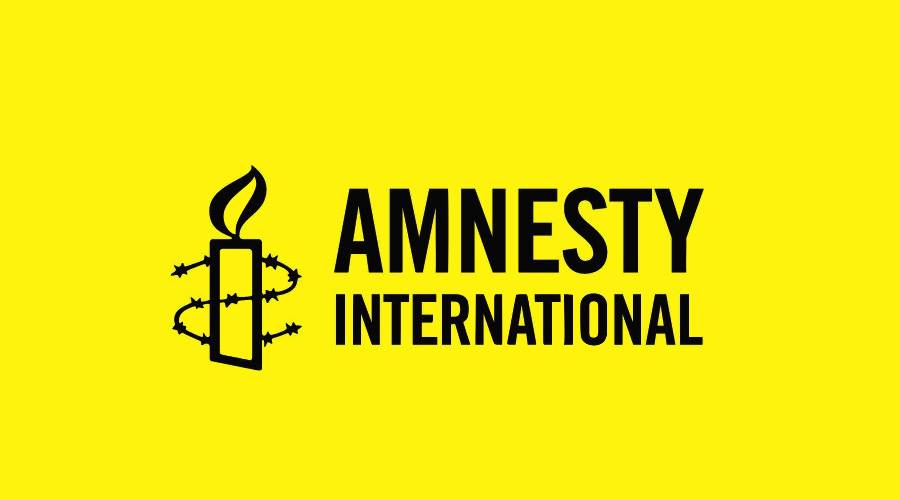
Amnesty International has published an annual report on human rights in Eastern Europe and Central Asia, Review 2019.
The report reviews the situation in Georgia as well. According to the report, trust in prosecutorial and investigatory agencies decreased further as investigations into alleged human rights violations by state officials were not completed.
“Also, fears of politically motivated prosecutions marked high profile cases. Police used disproportionate and indiscriminate force to disperse mass protests in the capital, Tbilisi, resulting in injuries to dozens of protesters. Authorities refused to protect what would have been Georgia’s first ever Pride march. Russia and the breakaway territories of Abkhazia and South Ossetia/Tskhinvali Region continued to restrict freedom of movement with the rest of Georgia, negatively impacting on economic and social rights of local residents”, – the document reads.
The report provides general info: ” In June anti-government and antiRussian protests erupted in Tbilisi, after a visiting member of the Russian parliament occupied the Georgian parliamentary speaker’s seat while chairing the Interparliamentary Assembly on Orthodoxy. Russia responded by banning air travel to Georgia. In an effort to meet some of the protesters’ demands the ruling Georgian Dream party announced electoral reform measures aimed at guaranteeing a more pluralistic parliament. These were not delivered, however, provoking further protests in November.
Ongoing judicial reform provoked criticism from civil society organisations who blamed a group of ‘old-guard’ judges for taking over the reformed judiciary by appointing their supporters and preventing independent judges from joining the system.
The Russian Federation retained a military presence in and overall control of the breakaway regions of Abkhazia and South Ossetia/Tskhinvali Region. Russian forces and the de facto authorities in the breakaway regions continued to deny access to international monitors, including the unarmed civilian monitoring mission of the European Union (EUMM). In October, the South Ossetian/Tskhinvali Region de facto authorities briefly detained EUMM monitors as they patrolled along the division line” , – report reads.
The report notes that Criminal investigations into past alleged abuses of authority failed to deliver tangible results.
“The State Inspector’s Service commenced its investigatory functions in November, as a stand-alone official agency for the investigation of grave crimes committed by public officials, including torture and other ill-treatment. The Prosecutor’s Office, however, retains its “supervisory role” over the agency’s investigations.
The investigation into the killing of 18-year-old Temirlan Machalikashvili in 2017 by the State Security Service forces during an anti-terror operation in Pankisi Gorge, was not completed. His family was refused victim status, thus obstructing their access to case materials. Their objections to the official claim that Temirlan Machalikashvili had tried to detonate a grenade during his arrest in their home, were dismissed.
The investigation into the 2017 abduction of Azerbaijani investigative journalist Afghan Mukhtarli, allegedly by Georgian officers, and his forced return across the border to Azerbaijan, remained open and inconclusive. Afghan Mukhtarli remained in prison in Azerbaijan under trumped-up charges of illegal border crossing and money smuggling.
In June, authorities detained a participant of the 2017 high school student brawl in Tbilisi, where two teenagers were killed, on charges of murder. For two years Zaza Saralidze, the father of one of the victims, David Saralidze, had campaigned for justice and against the results of the initial investigation. He asserted that the murderer had been shielded from prosecution by certain officials at the Prosecutor’s Office and the Interior Ministry. Despite the suspect’s arrest, no investigation was launched into the alleged obstruction of justice by officials overseeing the criminal case. A parliamentary inquiry into these allegations named 10 officials at the Prosecutor’s Office and the Interior Ministry as allegedly responsible for the cover up”, – reads the report by Amnesty International.
The issue of media freedom is also discussed in the document.
“Concerns over media freedom persisted, specifically in cases of widely perceived, or as reported in opposition media, politically motivated prosecution of government critics. In August, media manager and outspoken government critic Nika Gvaramia was charged with abuse of authority during his time as director of a pro-opposition TV channel, Rustavi 2. In subsequent months, additional charges related to misappropriation of funds and fraud were pressed against him. Conspicuously, these charges followed a long-standing legal battle over Rustavi 2 ownership which passed into the hands of its former owners who were known for their support of the government. Another high-profile case involved businessman Mamuka Khazaradze, charged with money laundering. He claimed the authorities had sent him a threatening letter in 2018 demanding that TV Pirveli, owned by his business partner, change its editorial policy. In August, the father of TV Pirveli’s owner was also charged under the same case of alleged money laundering”, – report reads.








